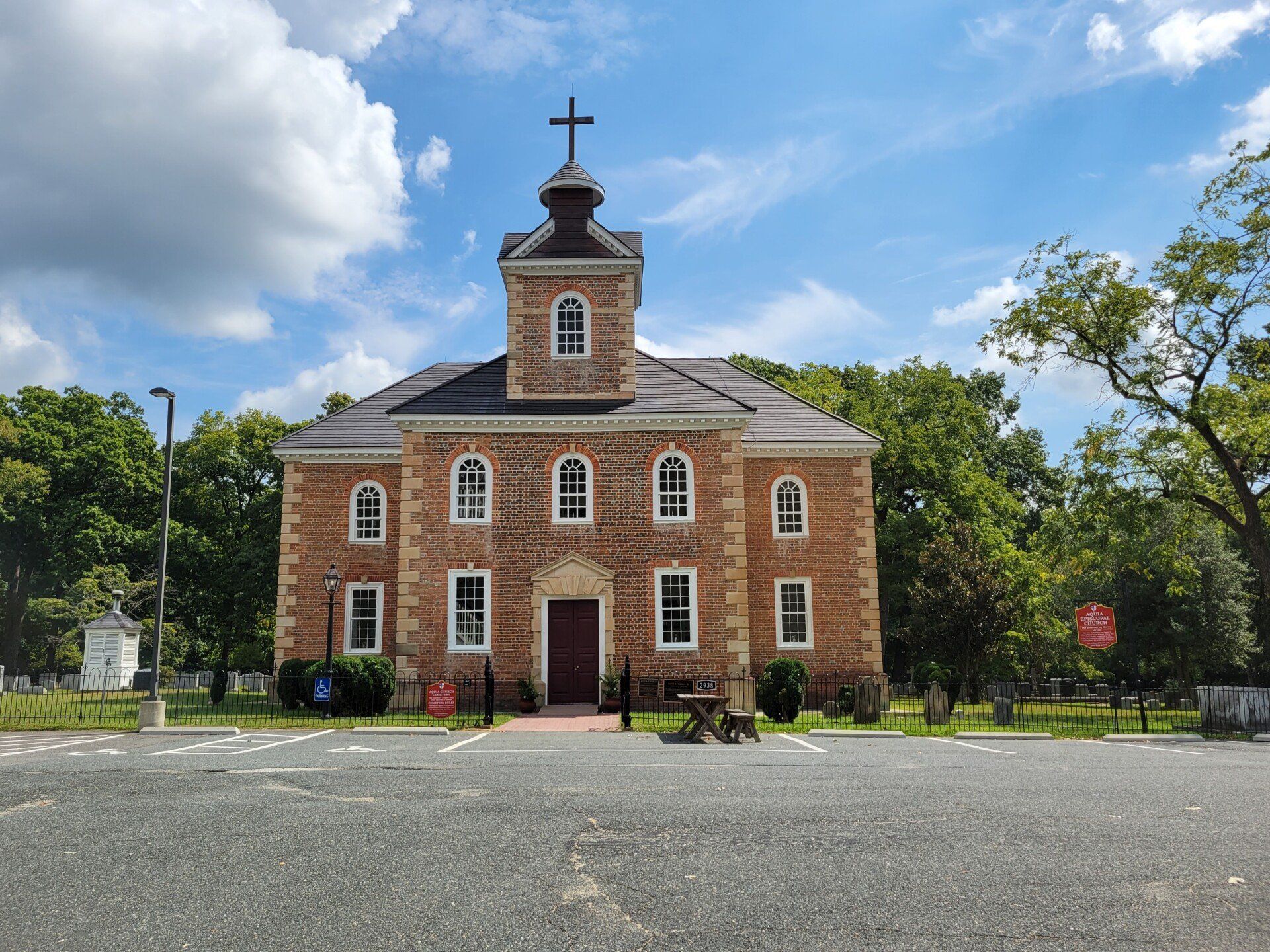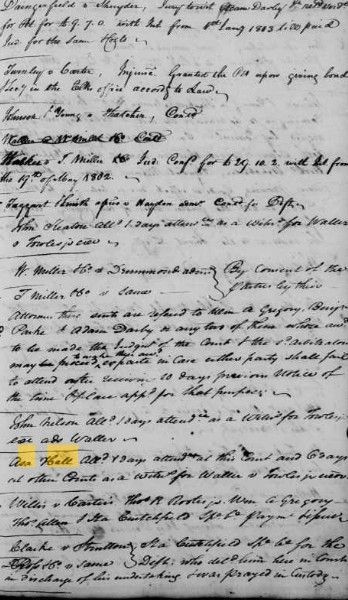Was My Ancestor George Washington's Handyman?
Searching for the Backstory is Always Fun
Sometimes the records don't prove what we think but the search is always fun and often yields interesting results.
Oral tradition passed down through the Herod family indicates my ancestor William Herod, a Revolutionary War veteran, was George Washington's handyman. While I have never been able to prove this, it is certain he lived in the right area and could certainly have encountered the Father of Our Country. The same oral tradition states his son Peter Herod (born 1787) was Washington's godson. Another tradition was that William's father served with Washington in the French and Indian War.
I have researched high and low and never been able to confirm the traditions with documentary evidence, but I have uncovered a lot on the family and community.
Recently, I had a chance to travel to where William Herod was born in Stafford County, Virginia. He grew up along Aquia Creek. Born on 25 December 1748, the son of John Herod and Mary Ellis, he was baptized in Overwharton Parish.
The HEROD family has been described as Episcopalians (Church of England) by descendants and this would correspond with the parish records of Overwharton Parish and the existing churches of Stafford County in the mid-1700s. The first major church in Stafford County was Potomac Church build in the mid-seventeenth century. In 1751, the vestry of Overwharton Parish determined to build a large 3000 square foot brick church and named it Aquia Church as it was at the head of Aquia Creek. It was destroyed by fire in 1754 but rebuilt in 1757. Both Potomac and Aquia Churches operated simultaneously for a while, but Aquia Church survives to this day. It is likely William HEROD was baptized in Potomac Church. (See the picture of the beautiful Aquia Church I took in summer 2022 attached to the blog).
As a soldier of the Revolution, details about William HEROD’s military service are found in his pension application. William was drafted in May 1776 and served three months as a private in Captain John COOK's Virginia Company. In July 1777, he enlisted and served three months as a private in the same company. He was involved in a skirmish with the British on the Potomac River. In August 1781, he enlisted and served three months as a private in Captain John JAMES' Virginia Company.
William was a member of the Virginia militia and one would think his service was somewhat routine, however, there were periods of intense excitement as the area near the Potomac where he lived in Stafford County was strategically important to the British. On Tuesday, 23 July 1776, the British burned Richland, the home of William BRENT, Esquire on the Potomac. It would seem quite likely that William HEROD was one of the 300 militia members camped out at Richland when Lord DUNMORE and Captain Andrew HAMOND arrived with their small fleet. HAMMOND related how he landed at noon that day with only 100 men, beat the enemy off and set fire to the house and all its buildings. The British returned after the incident to their ships without losing a single man and only one office and five men were wounded.
George WASHINGTON’s stepson- John Parke CUSTIS – wrote his father a letter dated 8 August 1776 about the incident.
“You have no doubt heard of the Men of War coming up Potwmack as far Mr. BRENT”s whose House they burnt with several outhouses and some Stacks of Wheat. A Capt. JAMES with the Militia was stationed there who all got drunk, and kept challenging the Men of War to come ashore, and upbraiding Them with Cowardice. HAMMOND sent 150 men who landed about 10 oclock Under cover of a Gondola Tender, the Militia were asleep after their drinking Frolick and did not discover the Enemy until they landed and their vessels began to Fire. Capt. JAMES desired his men to shift for Themselves and ran off without firing a Gun. A Young Man Name COMBS stayd until he killd three of the Enemy. Col. GRAYSON appearing with 30 Prince William Volunteers, the Enemy though it proper to retire to their ships. Capt. JAMES is to be held for Cowardice – The Fleet after performing this Exploit, returned down the River to George’s Island, from whence they have been drove off by Major PRICE with some losses. They are gone down the Bay in a most sickly Condition. I have not heard where they have stopt, before they left the Island they burnt several Vessels, and I hear that two Sloops belonging to them have fallen into Capt. BOUCHER’s hands.”
The Virginia Gazette issue of 22 August 1776 provides even more detail.
“Since our last, we have certain advice that lord DUNMORE, with his motley band of pirates and renegades, have burnt the elegant brick house of William BRENT, esq. at the mouth of Aquia creek in Stafford county, as also two other houses lower down Potowmack river, the property of widow ladies, with several ferry boats; that on Tuesday fe’nnight he relanded on St George’s island, but was beat off by 1200 Marylanders; that he had burnt eight of his vessels, and was seen standing down the bay the Thursday after with all his fleet.”
William BRENT, a large landholder, was captain of the Prince William County militia. Though Captain John JAMES was not William HEROD’s commander at that time, it would seem probable that HEROD was among the 300 militia men there that day charged with protecting their home turf.
Captain John JAMES was court-martialed on 20 September 1776. At his Stafford court house trial, the court justices found he was “not deficient in spirit as has been frequently alledged.” Witnesses testified that he held his ground until all but about 15 men had fled, despite his attempts to rally them. The justices concluded the destruction was “owing to the militia’s not being better armed and disciplined.” Lack of arms and poor discipline was indeed a problem, especially early in the Revolutionary War.
There is MUCH more I have been able to learn about William HEROD's life. The research is ongoing. He moved to Spotsylvania County in 1792 and then to Smith County Tennessee where he died in 1836.
These are the types of historical and genealogical records that can be blended together to discover and "flesh out" the backstories of our ancestors. If interested in having Backstory Bloodhound get to work on your family backstory, click on the Services tab above or e-mail me at rick@backstorybloodhound.com.





